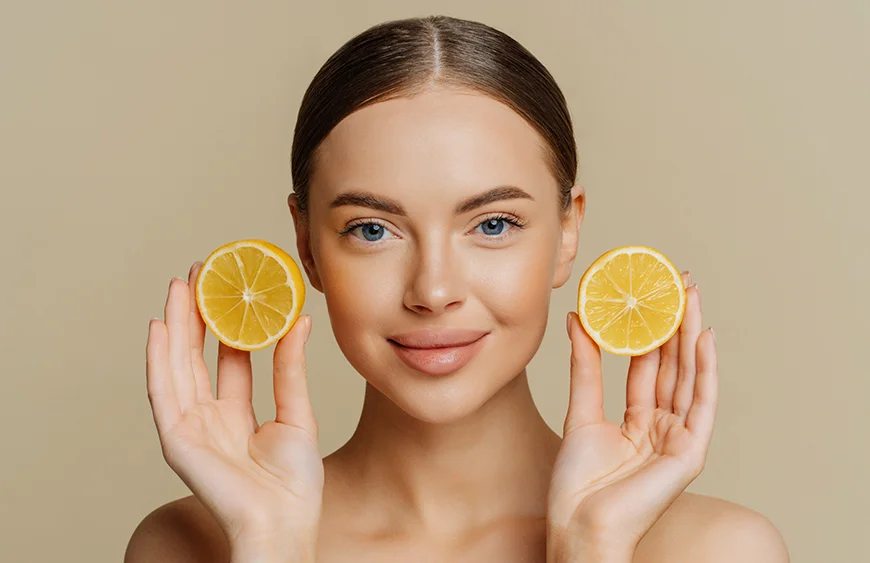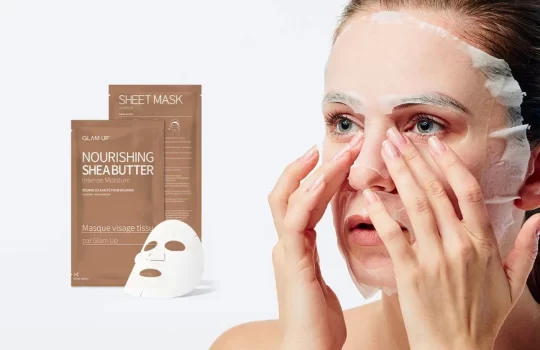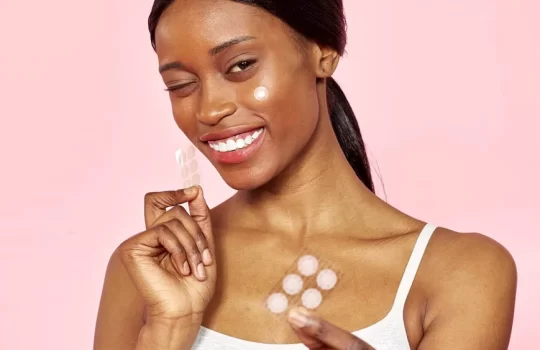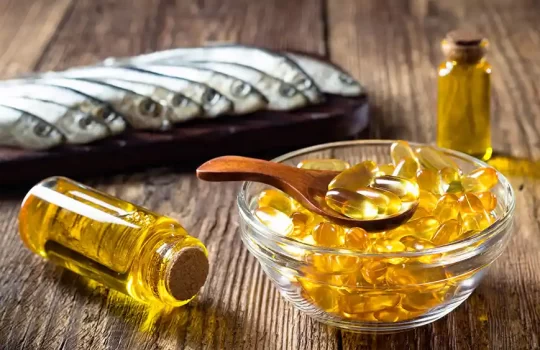Maintaining radiant and glowing skin is a multifaceted process, and one crucial element in this endeavor is the role of vitamins for glowing skin. So, if you appreciate the analogy of skin as a canvas, with vitamins acting as the vibrant pigments that contribute to its luminosity, vitamins such as A, C, E, and many others are pivotal for skin health, each offering unique benefits.
Yet, vitamins are crucial for safeguarding optimal health and well-being. These essential micronutrients are fundamental in various physiological processes, from immune function and energy metabolism to maintaining skin, vision, and overall organ health. As a translator and writer interested in health, exploring the intricate connections between vitamins for glowing skin and the body’s functions is fascinating.
Vitamin A: Multifaceted Importance for Healthy Skin

Vitamin A is crucial in maintaining healthy skin, and its importance is multifaceted. Here are some essential functions of Vitamin A for the skin:
1. Cell Growth and Repair:
Vitamin A is necessary to grow and repair skin cells. It promotes the production of new skin cells, helping to replace old or damaged ones. It’s one of the best vitamins for glowing skin.
2. Collagen Production:
Vitamin A synthesises collagen, a protein that provides structure to the skin. Collagen helps maintain skin elasticity and reduces the appearance of wrinkles.
3. Protection from UV Damage:
Vitamin A has antioxidant properties that help protect the skin from the harmful effects of ultraviolet (UV) rays. This can prevent premature ageing and reduce the risk of skin cancers.
4. Moisture Retention:
Vitamin A supports the production of sebum, an oily substance that helps keep the skin moisturised. This can prevent dryness and flakiness.
5. Wound Healing:
Vitamin A is crucial for the healing of wounds and cuts. It contributes to the formation of scar tissue and accelerates the recovery process.
6. Regulation of Skin Tone:
Vitamin A helps regulate the production of melanin, the pigment responsible for skin colour, contributing to an even skin tone and reducing the appearance of dark spots and hyperpigmentation.
Vitamin B: Vital Divergent for Healthy Skin

Vitamin B, with its divergent substructions, is crucial in maintaining nutritious skin. Several B is vital among vitamins for glowing skin, each with specific benefits:
1. Biotin (B7):
This vitamin is essential for maintaining healthy skin, hair, and nails. It is crucial in synthesizing fats, amino acids, and glucose, vital for skin cells.
2. Niacin (B3):
Niacin helps improve the skin’s elasticity, tone, and texture. It also aids in treating various skin conditions and supports the skin’s barrier function.
3. Riboflavin (B2):
This vitamin repairs and maintains healthy skin. It contributes to the production of collagen, an essential protein that provides structure to the skin.
4. Pantothenic Acid (B5):
Pantothenic acid is essential for skin health as it contributes to the synthesis of fatty acids and helps maintain the skin’s moisture.
5. Pyridoxine (B6):
Vitamin B6 is involved in over 100 enzyme reactions, some of which are important for maintaining healthy skin.
6. Folate (B9):
Folate is crucial for DNA synthesis and repair, including the DNA within skin cells. It contributes to the overall health and appearance of the skin.
Vitamin C: Maestro of Glowy Skin Orchestra

Vitamin C, ascorbic acid, is crucial among vitamins for glowing skin in maintaining healthy skin. Here are some critical reasons why Vitamin C is vital for the skin:
1. Collagen Synthesis:
Vitamin C is essential for synthesising collagen, a protein that provides structure to the skin, hair, and connective tissues. Collagen helps maintain skin elasticity and firmness, preventing the development of wrinkles and fine lines.
2. Antioxidant Protection:
Vitamin C is a powerful antioxidant that helps protect the skin from damage caused by free radicals. Free radicals are unstable molecules generated by exposure to UV radiation, pollution, and other environmental factors. Antioxidants like Vitamin C neutralise these free radicals, reducing oxidative stress and preventing premature skin ageing.
3. Skin Brightening:
Vitamin C inhibits melanin production, the pigment responsible for dark spots and hyperpigmentation. Regular use of Vitamin C can help brighten the skin, even out skin tone, and reduce the appearance of age spots and sun damage.
4. Wound Healing:
Vitamin C is involved in wound healing. It helps the skin repair itself by promoting collagen synthesis and other connective tissues. This can be beneficial for addressing scars and promoting overall skin health.
5.Sun Protection:
While not a replacement for sunscreen, Vitamin C has been shown to provide some protection against UV rays. It can enhance the effectiveness of sunscreen and contribute to the skin’s defence against sun damage.
6. Hydration:
Vitamin C plays a role among vitamins for glowing skin in maintaining the skin’s moisture content. It helps produce lipids essential for the skin’s barrier function. A well-hydrated skin barrier is better equipped to retain moisture and protect against external irritants.
Vitamin D: Crucial Element for Well-being

The importance of Vitamin D for the skin is significant. Vitamin D is essential for various bodily functions, and its impact on the skin is notable. Here are some key points:
1. Skin Health:
Vitamin D plays a crucial role in maintaining healthy skin. It contributes to skin cell growth, repair, and metabolism.
2. Immune System Support:
Vitamin D helps support the immune system, and a robust immune system is vital for overall skin health. It aids in protecting the skin from infections and diseases.
3. Wound Healing:
Vitamin D is involved in wound healing. It promotes the formation of new skin, which is essential for recovering from injuries, cuts, or other skin-related issues.
4.Anti-Inflammatory Effects:
Vitamin C is involved in wound healing. It helps the skin repair itself by promoting collagen synthesis and other connective tissues. This vitamins for glowing skin can be beneficial for addressing scars and promoting overall skin health.
5. Protection Against UV Radiation:
While Vitamin D is produced in the skin upon exposure to sunlight, it also helps protect the skin from the harmful effects of excessive UV radiation. However, it’s important to note that Vitamin D should not be considered a substitute for sun protection measures.
6. Prevention of Skin Aging:
Some studies suggest Vitamin D may help prevent premature ageing by supporting the skin’s natural rejuvenation processes.
Vitamin E: Preserve Your Skin Canvas

Vitamin E is essential for maintaining healthy skin due to its antioxidant properties. Vitamin E helps protect the skin from oxidative stress caused by free radicals. This can result from exposure to environmental factors like UV rays and pollution. The benefits of vitamin E for the skin include:
1. Antioxidant Protection:
Vitamin E helps neutralise free radicals, preventing them from damaging the skin cells. This protection is crucial for maintaining skin health and preventing premature ageing.
2. Moisturisation:
Vitamin E contributes to skin hydration by strengthening the skin’s natural barrier. This can help prevent moisture loss and keep the skin supple.
3. Wound Healing:
Vitamin E is known for promoting wound healing. It can aid in the repair and regeneration of damaged skin cells, helping wounds or scars heal more efficiently.
4.Anti-Inflammatory Effects:
Vitamin E has anti-inflammatory properties, which can benefit individuals with sensitive or inflamed skin. It may help soothe irritation and reduce redness.
5. UV Protection:
While not a substitute for sunscreen, vitamin E can provide additional protection against UV damage. It works alongside other sun protection measures to maintain skin health.
Vitamin F: Home 24-hour dermatologist

Vitamin F is not a single vitamin but a term used to describe two essential fatty acids: linoleic acid (LA) and alpha-linolenic acid (ALA). These fatty acids are crucial for maintaining healthy skin. They are essential:
1. Moisture Retention:
Linoleic acid helps maintain the skin’s natural barrier, preventing water loss and keeping the skin hydrated. This is essential for preventing dryness and maintaining a smooth complexion.
2. Anti-Inflammatory Properties:
Both linoleic acid and alpha-linolenic acid have anti-inflammatory properties, which can help soothe irritated or inflamed skin. This can be beneficial for conditions such as eczema and psoriasis.
3. Skin Repair:
Essential fatty acids play a role in synthesising prostaglandins, which are involved in the skin’s natural healing process. They contribute to skin repair and regeneration, promoting a healthy and youthful appearance.
4. Prevention of Transepidermal Water Loss (TEWL):
Vitamin F helps create a protective barrier on the skin’s surface, reducing water loss. This is especially important in dry or harsh environmental conditions.
5. Support for Skin Conditions:
Some studies suggest that linoleic acid may be helpful for individuals with acne-prone skin. It is believed to balance sebum production, preventing the formation of acne lesions.
Vitamin J or Choline: Is there even such a thing?

We’re all familiar with Vitamins A, B, C, D, and E, but what about Vitamin J? Surprisingly, Vitamin J is not just a thing; it’s a beneficial one! Vitamin J is commonly referred to as choline, a compound that plays a crucial role in the body’s production of essential compounds and has properties related to fat metabolism. Vitamin J is often grouped with the B vitamins due to their collaborative functions and shared benefits, which are as follows:
1. Liver safeguarding:
Combat liver disease by safeguarding against fat accumulation; studies have demonstrated its effectiveness in improving conditions such as chronic hepatitis, cirrhosis, and fatty liver disease.
2. Enhancing brain parts:
Choline promotes brain health by participating in neurotransmitter production. It also expedites the production and release of acetylcholine, a vital neurotransmitter crucial for memory retention and muscle coordination.
3. Reducing Dementia Risk:
Research has shown that individuals with diets rich in choline perform better on memory tests and exhibit a lower likelihood of experiencing brain changes associated with dementia.
Vitamin K: Nourishing Skin Health and Beyond

Vitamin K is crucial in maintaining skin health through several mechanisms. Here are some key points highlighting the importance of vitamin K for the skin:
1. Wound Healing:
Vitamin K is involved in blood clotting and is essential for wound healing. It helps synthesise proteins that regulate blood clotting, preventing excessive bleeding and promoting proper healing of cuts and bruises.
2. Reducing Dark Circles:
Vitamin K is known for reducing the appearance of dark circles under the eyes. It helps strengthen the capillaries and prevent blood leakage, which can contribute to developing dark circles.
3. Anti-Inflammatory Properties:
Vitamin K has anti-inflammatory properties, which can benefit skin redness and inflammation. It helps calm irritated skin and promotes a more even complexion.
4. Collagen Synthesis:
Vitamin K synthesises collagen, a protein that provides structure to the skin. Collagen is essential for maintaining skin elasticity and firmness, contributing to a youthful and healthy appearance.
5. Skin Conditions:
Some skin conditions, such as certain types of eczema, may benefit from applying vitamin K. It can help reduce redness and improve the skin’s overall condition.
6. Minimizing Scars:
Vitamin K has been suggested to aid in minimising scars and promoting a more even skin tone. It may contribute to remodelling scar tissue, making scars less noticeable.
6. Protection Against Skin Aging:
As an antioxidant, vitamin K helps protect the skin from oxidative stress and free radical damage, which are factors that contribute to premature ageing. This can support maintaining a more youthful and radiant complexion.
Vitamins and their Source of Food
Now, concluding this blog post, Let us show their primary sources in Food. This excerpt presents a comprehensive table delineating crucial vitamins such as A, B, C, D, E, F, K, and J, alongside their principal dietary sources. This information aims to promote a holistic sense of well-being by enhancing awareness and knowledge regarding the constituents of a healthy diet.
| Vitamin | Main Sources | A | Carrots, Sweet Potatoes, Spinach, Kale, Mangoes |
|---|---|
| B | Whole grains, Meat, Fish, Eggs, Dairy, Leafy Greens |
| C | Citrus fruits, Strawberries, Bell Peppers, Broccoli |
| D | Fatty Fish, Fortified Foods (Milk, Cereals), Sunlight |
| E | Nuts and Seeds, Spinach, Broccoli, Sunflower Oil |
| F | Fish, Flaxseeds, Chia Seeds, Walnuts |
| J | Beef, Beef liver, Cauliflower, Eggs, Navy beans, Peanut butter, Sliced almonds |
| K | Leafy Greens (Kale, Spinach), Broccoli, Brussels Sprouts |
In conclusion, the paramount significance of vitamins in maintaining optimal health cannot be overstated. It is not only a matter of skin glow. As we traverse the complexities of modern lifestyles, understanding and prioritizing the intake of essential vitamins is pivotal.
These micronutrients act as catalysts in numerous physiological processes, bolstering our immune system, supporting cellular functions, and fortifying overall well-being.











